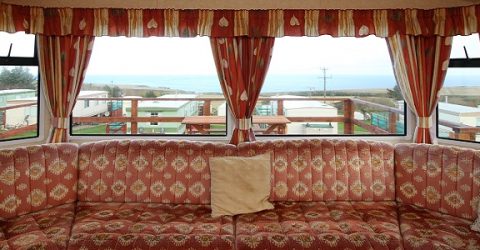Broadband options in temporary accommodation

The traditional model for domestic broadband involves a negotiated contract with a landline provider, usually lasting between one and two years.
Such fixed-term data-and-line-rental packages are ideal for people with stable domestic circumstances.
But what if you require temporary broadband while spending a period of time in a property that’s not your main home, where a high-speed router isn’t part of the furniture?
A fixed-term contract isn’t practical in these situations. Nor can your existing broadband hardware be packed into a suitcase and repositioned in a different building.
That’s not ideal if you have two weeks planned in a caravan this summer, or need to urgently rent an Airbnb apartment to fulfil a brief work secondment.
These are the best temporary broadband options in such scenarios…
A rolling 30-day contract
At the time of writing, BroadbandDeals.co.uk lists around 80 rolling contracts with firms including Virgin Media, DirectSave and Plusnet.
Setup costs vary from £25 to £80, and customers are free to walk away at any point after the initial 30-day period has elapsed.
Over a year, these deals are significantly more expensive than a typical 12-month contract, but they’re ideal for people who don’t want to undertake a year-long commitment.
Connection speeds depend on the temporary dwelling’s infrastructure, though people in properties cabled by Virgin Media can enjoy average download speeds of over 360Mbps.
Because a landline is required, caravans and other holiday accommodation may be better suited to one of the following options…
A USB dongle
Mobile network operators transmit data over the 4G cellular network, and will shortly be rolling out much faster services to 5G customers.
As well as connecting via smartphones and tablets, it’s possible to purchase a USB dongle which also taps into this network, piping connectivity to a single device.
USB dongles are often used in conjunction with laptops. Data tends to be limited (and it’ll be used up quickly without judicious self-management), but top-ups are easy to acquire.
Dongles are among the most practical temporary broadband options for people needing to get a single device online, such as a works computer in a rental flat.
Alternatively, if you need to connect more than one device, network operators offer a flexible alternative…
A MiFi hub
Expanding on the principles outlined above, a MiFi hub harnesses 4G signals to become a mobile broadband router.
A variety of wireless devices can connect simultaneously, harnessing download speeds of up to 300Mbps – network permitting, of course.
While a plug-in USB dongle generally supports a single device, MiFi hubs are more akin to conventional home hubs and broadband routers.
They’re often wireless and rechargeable, for easy portability. Connectivity is often controlled through dedicated software apps, and payment options vary widely.
Like plug-in USB dongles, MiFi hubs are sold with limited volumes of data. Once these reserves have been depleted, expensive data top-ups are required.
Tethering
Although tethering stands apart from the other temporary broadband options in our list, it deserves consideration in emergencies.
It involves piggybacking a second device on a smartphone’s mobile connectivity, once again harnessing the 4G or 5G networks.
Of all the temporary broadband options listed here, tethering is the least practical. It involves making a mobile device discoverable and pairing it each time a guest device goes online.
Tethering may be performed across a USB cable, WiFi or Bluetooth, though the latter is slow and cumbersome.
WiFi represents a superior option, though it’s significantly slower than a hardwired connection.






